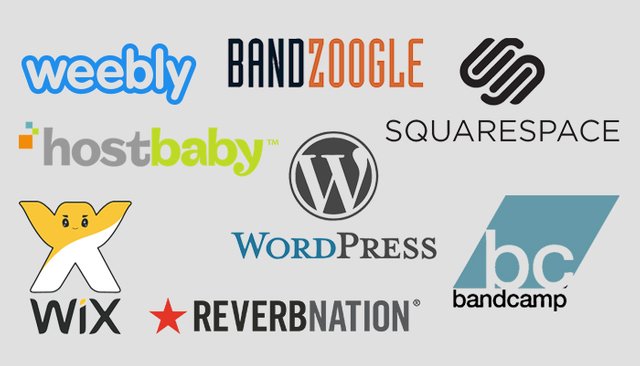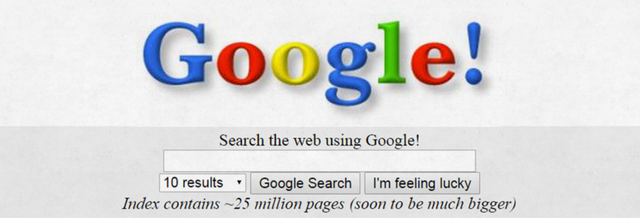Steem is in trouble!
For a long time already, and long before Steemit, there has been a pretty simple paradigm at work when it comes to monetizing (all sorts of) content online.
1
The content creator adds something of value to the internet
2
That value draws a crowd, and ...
3
... that crowd can be monetized through advertising, affiliate promotion, and similar.
It's a system with organic traffic at it's core, and despite many flaws, it has worked out well for many. At the center of it all is that godlike curator that determines, (rightly or wrongly) how valuable, relevant and trustworthy content is: GOOGLE.
And as much as I despise Google, it has done a lot to give content creators a level playing field. The hope, and the claim is that spam is rejected, and value is rewarded. Sorting the wheat from the chaff across the whole internet is complex business, and Google is constantly tweaking it's algorithm in an arms race against those who wish to make financial gain without building reputation or adding value.
SEO (Search Engine Optimization) experts had all sorts of tricks up their sleeves, for a very long time, but over time, Google had created an utterly sophisticated product, and the best SEO advice for content creators was simply to "be unique and create value". Google won. Spam lost. Of course social media plays it's part too with potential for content to be shared among peers and perhaps even go viral. This is what organic traffic is all about. The cream rising to the top, in a natural way, not because of some financial incentive, but because people value some content, so they link to it and share it and engage with it.
Anyone can make a website, but even with free or affordable software such as Wordpress, there are domain fees, design and maintenance involved, and the prospect of trying to capture an audience of strangers from search engines is a rather daunting task. But still, the incentive is there, to create something of value, rather than to be a dumbass spammer.

Enter Steemit in 2016, a fascinating and elegant new paradigm which removes much of the curation power from the search engines, and hands it over to the audience. Indeed it is not just the power which is handed over, but the responsibility too. Content creators aren't expected to deal with advertising, but are promised rewards based on the merit of their content, well for a week anyway. The system would be periodically tweaked to tackle spam and corruption, and a new age of content meritocracy would be upon us...

For a while, there were very generous rewards on Steemit, rewards that often didn't seem deserved, but nobody was complaining. This was mostly fueled by speculation and FOMO across the crypto spectrum. The money wasn't coming from thin air.
Then there was spam and plagiarism. Then there were spam fighters. Then there were bots, all the while the STEEM blockchain paradigm was being tweaked because of course, it was "in beta", and "a huge marketing effort is just around the corner". Then there were more bots, and corruption, and fights, and spam, and heck, even if you wanted to join, for a while it seemed like it was easier for non-humans to make a new account. Then the crypto market got rekt, and dragged the value of Steem down, and now Steemit is the apocalyptic pit of spam, bitterness and false hope that you see today. Oh, and co-founder Dan left in the middle of all that, too.
It's unfortunate that some of Steemit's most conspicuous shortcomings have gone overlooked, denied or rebuked for so long, despite the ever increasing unrest among users.
It was obvious quite early that spam and plagiarism were huge problems, and spam fighting entities such as @steemcleaners have done some great, but futile work to tackle the worst offenders. This spam came both from small fry accounts, and bigger, more established accounts, and that continues to this day. Imagine, humans manually checking for duplicate and spun content, taking hours to do what Google does in seconds. Not very efficient, to put it mildly.
Corruption among whales has also been a huge problem. As have personal/political vendettas, bullying, and indeed some have claimed to have been censored by whales for having the "wrong opinion".

Hugely though, the lack of residual rewards has seen content with long-term value going completely unrewarded. Well, not if you count Steemit's more recent addition of banner advertising. All of those thousands of pages of immutable content are still making Steemit Inc, not the original authors, a ton of dough. Thanks for that Steemit. So Steemit, previously heralded as "the answer to Google," "the enemy of Google", the "solution to Google" ... is now making money from Googles curation, and Googles banner advertising.
If that's not ironic enough, historically, Steemit posts where users have called for a shared-revenue advertising mechanism, have usually been shouted down by purists who sought to keep Steemit free from advertising. Well, it looks like nobody won that battle.

The Steem paradigm was broken from the start, not simply for putting too much trust in humans when financial rewards were at stake, or for conflating and confusing content creators with content consumers, but more importantly for disregarding the free, powerful, sophisticated and automated curation systems already in place by search engines, and expecting the audience to spend time and money curating content.
The search engines and social networks were already there to do the heavy lifting. As long as the STEEM content creator sees no residual rewards from organic traffic, the community rot will continue. Money talks and bullshit walks. There is no endorsement more honest than someone putting their hands in their own pockets and buying a product.
So for now, still, the best way to make money as a content creator is in the older paradigm, via a website, YouTube, or similar, monetizing organic traffic via sponsored adverts or affiliate links.
I hope to someday see an alternative content/blockchain project using crypto at it's financial core, but rewarding organic traffic, via targeted/relevant advertising. But Steemit/STEEM, as it stands today, is a deeply corrupt and dysfunctional system. I believe it is beyond repair, but I sincerely hope I'm wrong.




mannnn....i still love this place... no its not like it was last year but there are still some real people here liking the content... soo until that goes away..i'll still be here...
The ninja mine, which has been one of the main sticking points in the broader crypto community; is shrinking. Its pushing the price right down; which is terrible for morale; but every time they dump another 800K STEEM on the market, they make the project more palatable by owning less of it.
All these calls to stop the selling; part of me would like to see them triple it. At 2.4 million a month, the ninja mine would be gone in a year, and the chain would be entirely in the hands of people smart enough to snap up all the cheap STEEM.
I'd rather see it drop to 3c for 12 months, and know that Steemit INC are no longer at the wheel; than wait in the doldrums another 3 years.
Maybe Steemit was not created to replace google, but offering a crypto alternative to Reddit and Medium and becoming a dapp platform with one of the most advanced blockchain tech to handle this amount of traffic. But of course you are right with your criticism about plagiarism, spam and corruption, which unfortunately happens whereever humans are involved.